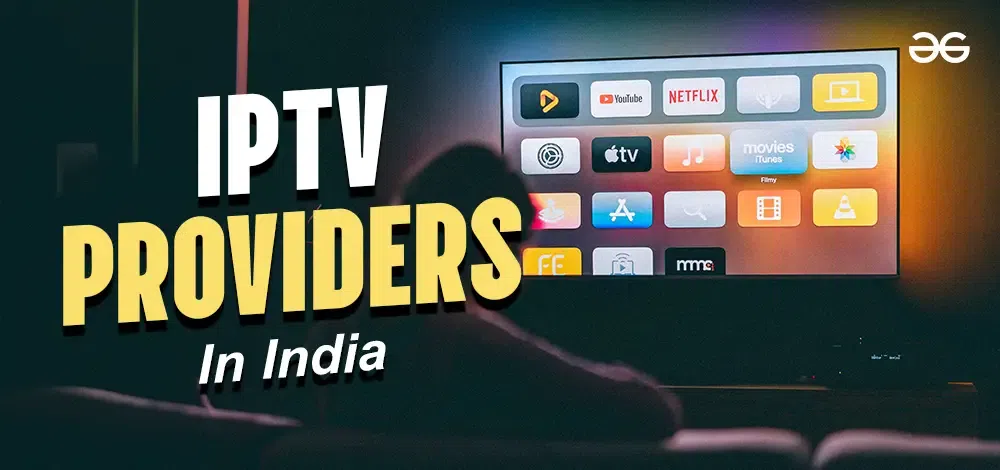Television has come a long way from its humble beginnings as a bulky, France IPTV black-and-white box that only provided a handful of channels. As technology advanced, so did the way we consume content. With the advent of the internet, a new and transformative method of watching TV emerged: IPTV, or Internet Protocol Television. This new model of television distribution is slowly overtaking traditional satellite and cable services, offering viewers greater flexibility, more content options, and interactive features that were once unimaginable.
What is IPTV?
IPTV stands for Internet Protocol Television, and it refers to the delivery of television content over the internet, rather than through traditional satellite or cable infrastructure. Essentially, IPTV transmits television signals using internet protocols, which are a set of rules that determine how data is sent and received over the internet. This means that instead of relying on broadcast waves or physical cables, IPTV streams TV shows, movies, live sports events, and other content directly to users’ devices through the internet.
The beauty of IPTV is that it’s not restricted to just your television. In fact, it can be accessed on a variety of devices, including smartphones, tablets, laptops, smart TVs, and even gaming consoles. All you need is an internet connection, and you can stream your favorite content wherever you are.
Types of IPTV
IPTV can be categorized into three main types, each offering unique services and experiences:
- Live IPTV: This type of IPTV allows users to watch live broadcasts of TV channels, similar to what is offered by traditional satellite or cable services. Viewers can tune into news broadcasts, sports events, talk shows, and more. The difference is that with IPTV, you can access these channels from anywhere with an internet connection.
- Time-Shifted IPTV: Time-shifted IPTV lets you catch up on your favorite programs that you may have missed. This service typically includes features such as pausing, rewinding, and fast-forwarding live TV, which offers a level of control that traditional broadcasting doesn’t. You can watch a show whenever it’s convenient for you, without worrying about time constraints.
- On-Demand IPTV: On-demand services allow users to access a vast library of TV shows, movies, documentaries, and other content whenever they wish. This is similar to the on-demand services provided by popular platforms like Netflix, Hulu, and Amazon Prime Video, but IPTV offers much more flexibility in terms of content choices and regional availability.
Benefits of IPTV
The rise of IPTV has brought about a range of benefits for both consumers and content providers. Some of the key advantages include:
- Variety of Content: IPTV opens the door to an enormous library of television shows, movies, documentaries, and more, often with access to international content that traditional TV services cannot offer. Viewers can explore content from different countries and cultures, expanding their horizons without limitations.
- Cost-Effective: IPTV often proves to be more affordable than traditional cable or satellite TV services. Instead of paying for a large bundle of channels that you don’t watch, IPTV providers typically offer more tailored packages. Plus, many IPTV services allow users to choose between pay-per-view and subscription models, providing flexibility in terms of payment.
- Convenience and Flexibility: One of the most significant benefits of IPTV is its ability to be accessed from virtually any device. Whether you’re watching on your smartphone while commuting or on your smart TV from the comfort of your couch, IPTV provides ultimate flexibility. Additionally, with time-shifted TV and on-demand options, you can watch content whenever you want, without having to adhere to a specific broadcast schedule.
- Interactive Features: IPTV isn’t just about watching television. Many IPTV platforms come with interactive features like multi-screen viewing, live chat during sports events, and even integrated social media platforms. These added features provide a richer, more engaging viewing experience than traditional television.
- Personalized Experience: With IPTV, content recommendations can be tailored to your tastes and preferences, thanks to data-driven algorithms. Unlike traditional television, which forces you to watch what’s currently airing, IPTV platforms offer more personalized and customized content based on your viewing habits.
Challenges and Considerations
Despite its many advantages, IPTV does come with some challenges that users should consider before making the switch:
- Internet Speed: Since IPTV relies on internet connectivity, the quality of your experience will largely depend on the speed and reliability of your internet connection. A slower connection could result in buffering, lower-quality video, and poor streaming performance. It’s crucial to ensure that you have a fast and stable internet connection if you want to enjoy high-definition (HD) or 4K content.
- Legal and Security Concerns: While there are many legitimate IPTV services available, the market has also seen the rise of illegal IPTV providers that offer pirated content. These services often come with the risk of malware, data breaches, and legal issues. It’s important to choose a reputable IPTV provider to avoid these risks.
- Geographical Restrictions: Even though IPTV offers a wide variety of content, some services may be restricted to specific regions due to licensing agreements. This means that content available in one country may not be accessible in another, although many IPTV users circumvent this with virtual private networks (VPNs) to access geo-restricted content.
The Future of IPTV
The future of IPTV looks incredibly promising. As internet infrastructure continues to improve, and as more consumers demand flexible and personalized viewing experiences, IPTV is poised to become the dominant method for consuming television content. With advancements in 5G technology, cloud storage, and artificial intelligence, IPTV platforms will likely become even more sophisticated, offering higher-quality streams, smarter content recommendations, and even more interactive experiences.
Additionally, IPTV’s impact on the traditional TV industry is already being felt, with many cable and satellite providers offering IPTV-style services in an attempt to keep up with the changing demand. Over time, this could lead to a more unified and competitive market, benefiting consumers and content creators alike.
In conclusion, IPTV is reshaping the way we think about television. It offers a level of flexibility, choice, and convenience that traditional TV simply can’t match. With more and more people turning to the internet for entertainment, IPTV is set to continue its rise as the future of television consumption.




